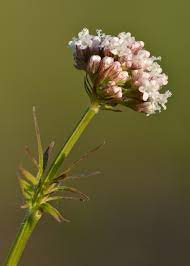Disclaimer: This Materia Medica is provided for informational purposes only and should not replace professional medical advice. Please consult with a qualified healthcare practitioner or herbalist before using any herbal remedies.
Materia Medica of Valerian (Valeriana officinalis)
Introduction: Valerian (Valeriana officinalis) is a well-respected medicinal herb with a rich history of use dating back centuries. As a professional herbalist, I consider Valerian to be a valuable addition to any herbal medicine chest. It has a wide range of therapeutic properties and applications, making it a versatile herb for various health concerns. In this comprehensive Materia Medica, I will explore the botanical characteristics, chemical composition, traditional uses, dosage, and safety considerations of Valerian.
Botanical Description:
- Valerian is a perennial herbaceous plant native to Europe and Asia, and it is now naturalized in North America.
- The plant typically reaches a height of 3 to 5 feet and features compound pinnate leaves with lance-shaped leaflets.
- Valerian produces fragrant, small, pink or white flowers that are arranged in umbrella-like clusters.
- The root is the primary medicinal part of the plant and is characterized by its pungent odor, often likened to that of dirty socks.
Chemical Composition:
- Valerian root contains a complex mixture of compounds, with the most significant constituents being valepotriates, valeric acid, and volatile oils.
- Valeric acid is believed to be responsible for Valerian’s calming effects on the nervous system.
- Volatile oils, including bornyl acetate, camphene, and others, contribute to the herb’s characteristic aroma.
Traditional Uses: Valerian has a wide range of traditional and contemporary uses in herbal medicine:
- Sedative and Anxiolytic: Valerian is most renowned for its ability to promote relaxation, reduce anxiety, and improve sleep quality. It is often used to alleviate insomnia and nervous tension.
- Muscle Relaxant: Valerian may help relieve muscle tension and spasms, making it useful for conditions like muscle cramps and menstrual cramps.
- Digestive Aid: Valerian can have a calming effect on the digestive system and may be used to soothe digestive discomfort, such as indigestion and irritable bowel syndrome (IBS).
- Mild Pain Relief: Some herbalists use Valerian to help alleviate mild pain, especially when it is associated with tension or stress.
- Cardiovascular Health: Valerian has been suggested to have a mild hypotensive effect, potentially aiding in the management of hypertension.
- Menopausal Symptoms: It may help ease menopausal symptoms like hot flashes and mood swings.
Dosage and Administration:
- Valerian is available in various forms, including tinctures, capsules, teas, and dried roots.
- Tincture: Typically 1-2 mL (20-40 drops) 30 minutes before bedtime for sleep support.
- Capsules: Follow the manufacturer’s instructions.
- Tea: Steep 1-2 teaspoons of dried Valerian root in hot water for 10-15 minutes, 2-3 times per day.
- Always start with a low dose and adjust as needed.
- For chronic conditions, it may take several weeks of consistent use to see optimal results.
Safety Considerations:
- Valerian is generally considered safe when used as directed, but it may cause dizziness, drowsiness, and stomach upset in some individuals.
- Avoid alcohol and sedative medications while using Valerian, as it may potentiate their effects.
- Pregnant and breastfeeding women should consult a healthcare professional before using Valerian.
- Valerian should not be given to children without the guidance of a qualified herbalist or healthcare provider.
- Long-term, high-dose use of Valerian may lead to dependence or withdrawal symptoms upon discontinuation.
Conclusion: Valerian is a valuable herb in the world of herbal medicine, appreciated for its calming and soothing properties. As a professional herbalist, I find it to be an essential tool in promoting relaxation, alleviating anxiety, improving sleep, and addressing various other health concerns. However, it is crucial to use Valerian responsibly, following dosage guidelines and considering individual health factors. Consulting with a qualified herbalist or healthcare provider is always recommended for personalized guidance.





